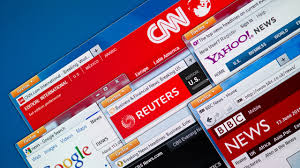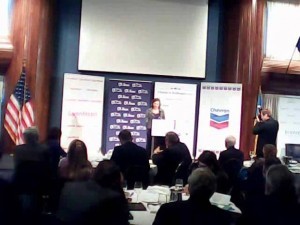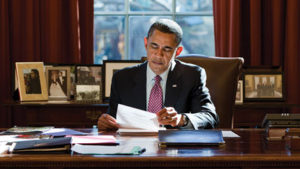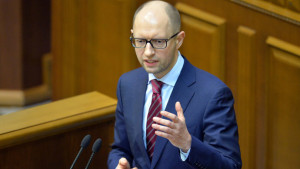What to Do about ‘Fake News’. Who gets to Decide What is Real and What is Not Real?

A pushback is coming to the Internet’s success in giving the world access to diverse opinions and dissenting information. Politicians, mainstream media and technology giants are taking aim at what they call “fake news,” reports Robert Parry.
In the wake of Donald Trump’s victory, a hot new issue – raised by President Obama in an international setting on Thursday and touted on The New York Times’ front page on Friday – is the problem of “fake news” being disseminated on the Internet.
Major Internet companies, such as Google and Facebook, are being urged to censor such articles and to punish alleged violators. Also, teams of supposedly “responsible” news providers and technology giants are being assembled to police this alleged problem and decide what is true and what is not.
But therein lies the more serious problem: who gets to decide what is real and what is not real? And – in an age when all sides propagate propaganda – when does conformity in support of a mainstream “truth” become censorship of reasonable skepticism?
As a journalist for more than four decades, I take seriously the profession’s responsibility to verify information as much as possible before publishing it – and as editor of Consortiumnews.com, I insist that our writers (and to the extent possible, outside commenters) back up what they say.
I personally hate “conspiracy theories” in which people speculate about a topic without real evidence and often in defiance of actual evidence. I believe in traditional journalistic standards of cross-checking data and applying common sense.
So, I am surely no fan of Internet hoaxes and baseless accusations. Yet, I also recognize that mainstream U.S. news outlets have made horrendous and wholesale factual errors, too, such as reporting in 2002-03 that Iraq had reconstituted its nuclear weapons program (The New York Times) and was hiding stockpiles of WMD (many TV and print outlets, including The Washington Post).
And, mainstream outlets getting such life-and-death stories wrong was not just a one-off affair around the Iraq invasion. At least since the 1980s, The New York Times has misreported or glossed over many international issues that put the United States and its allies in a negative light.
For instance, the Times not only missed the Nicaraguan Contra cocaine scandal, but actively covered up the Reagan administration’s role in the wrongdoing through the 1980s and much of the 1990s.
The Times lagged badly, too, on investigating the secret operations that became known as the Iran-Contra Affair. The Times’ gullibility in the face of official denials was an obstacle for those of us digging into that constitutional crisis and other abuses by the Reagan administration. [For more on this topic, see Consortiumnews.com’s “New York Times: Apologist for Power.”]
In that same era, The Washington Post performed no better. Leonard Downie, its executive editor at the time of the Contra-cocaine scandal, has continued to reject the reality of Ronald Reagan’s beloved Contras trafficking in cocaine despite the 1998 findings of CIA Inspector General Frederick Hitz that, in fact, many Contras were neck-deep in the cocaine trade and the Reagan administration covered up their criminality for geopolitical reasons.
More recently, during the mad dash to invade Iraq in 2002-03, the Post’s editorial-page editor Fred Hiatt wrote repeatedly as flat fact that Iraq was hiding WMD and mocked the few dissenting voices that challenged the “group think.”
Yet, Hiatt suffered no accountability for his falsehoods and is still the Post’s editorial-page editor, still peddling dubious examples of Washington’s conventional wisdom.
Ministry of Truth
So, who are the “responsible” journalists who should be anointed to regulate what the world’s public gets to see and hear? For that Orwellian task, a kind of Ministry of Truth has been set up by Google, called the First Draft Coalition, which touts itself as a collection of 30 major news and technology companies, including the Times and Post, tackling “fake news” and creating a platform to decide which stories are questionable and which ones aren’t.

Correspondent Michael Usher of Australia’s “60 Minutes” claims to have found the billboard visible in a video of a BUK missile launcher after the shoot-down of Malaysia Airlines Flight 17 on July 17, 2014, but the scenes actually don’t match up at all. (Screen shot from Australia’s “60 Minutes”)
Formed in June 2015 and funded by Google News Lab, the First Draft Coalition’s founding members included Bellingcat, an online “citizen journalism” site that has gotten many of its highest profile stories wrong and is now associated with NATO’s favorite think tank, the Atlantic Council.
Despite Bellingcat’s checkered record and its conflicts of interest through the Atlantic Council, major Western news outlets, including the Times and Post, have embraced Bellingcat, apparently because its articles always seem to mesh neatly with U.S. and European propaganda on Syria and Ukraine.
Two of Bellingcat’s (or its founder Eliot Higgins’s) biggest errors were misplacing the firing location of the suspected Syrian rocket carrying sarin gas on Aug. 21, 2013, and directing an Australian news crew to the wrong site for the so-called getaway Buk video after the July 17, 2014 shoot-down of Malaysia Airlines Flight 17.

A screen shot of the roadway where the suspected BUK missile battery supposedly passed after the shoot-down of Malaysia Airlines Flight 17 on July 17, 2014. (Image from Australian “60 Minutes” program)
But like many news outlets that support establishment “group thinks,” Bellingcat wins widespread praise and official endorsements, such as from the international MH-17 investigation that was largely controlled by Ukraine’s unsavory intelligence agency, the SBU and that accepted Bellingcat’s dubious MH-17 evidence blaming the Russians.
If such a Ministry of Truth had existed in the mid-1980s, it might well have denounced the investigative reporting on the Contra-cocaine scandal since that was initially deemed untrue. And if “Minitrue” were around in 2002-03, it almost surely would have decried the handful of people who were warning against the “group think” on Iraq’s WMD.
Power and Reality
While it’s undeniable that some false or dubious stories get pushed during the heat of a political campaign and in wartime – and journalists have a role in fact-checking as best they can – there is potentially a greater danger when media insiders arrogate to themselves the power to dismiss contrary evidence as unacceptable, especially given their own history of publishing stories that turned out to be dubious if not entirely false.
It’s even more dangerous when these self-appointed arbiters of truth combine forces with powerful Internet search engines and social media companies to essentially silence dissenting opinions and contrary facts by making them very difficult for the public to locate.
Arguably even worse is when politicians – whether President-elect Donald Trump or Turkish President Recep Tayyip Erdogan or President Obama – get into the business of judging what is true and what is false.
On Thursday, an impassioned President Obama voiced his annoyance with “fake news” twice in his joint news conference in Berlin with German Chancellor Angela Merkel — “because in an age where there’s so much active misinformation and it’s packaged very well and it looks the same when you see it on a Facebook page or you turn on your television. … If everything seems to be the same and no distinctions are made, then we won’t know what to protect.”
Let that phrase sink in for a moment: “We won’t know what to protect”? Is President Obama suggesting that it is the U.S. government’s role to “protect” certain information and, by implication, leave contrary information “unprotected,” i.e. open to censorship?
On Friday, a New York Times front-page article took Facebook to task, in particular, writing: “for years, the social network did little to clamp down on the false news.”
The Times added, in a complimentary way, “Now Facebook, Google and others have begun to take steps to curb the trend, but some outside the United States say the move is too late.”
Info-War
This new alarm about “fake news” comes amid the U.S. government’s “information war” against Russia regarding the Syrian and Ukraine conflicts. Obama’s State Department insists that it is presenting the truth about these conflicts while Russia’s RT channel is a fount of disinformation. Yet, the State Department’s propaganda officials have frequently made false or unsupported claims themselves.
On Wednesday, there was the unseemly scene of State Department spokesman John Kirby refusing to answer reasonable questions from a Russian journalist affiliated with RT.
The RT journalist asked Kirby to identify the hospitals and clinics in Syria that he was claiming had been hit by Russian and Syrian airstrikes. You might assume that a truth-teller would have welcomed the opportunity to provide more details that could then be checked and verified.
But instead Kirby berated the RT journalist and tried to turn the rest of the State Department press corps against her.
QUESTION: Don’t you think it is important to give a specific list of hospitals that you’re accusing Russia of hitting? Those are grave accusations.
KIRBY: I’m not making those accusations. I’m telling you we’ve seen reports from credible aid organizations that five hospitals and a clinic —
QUESTION: Which hospital —
KIRBY: At least one clinic —
QUESTION: In what cities at least?
KIRBY: You can go look at the information that many of the Syrian relief agencies are putting out there publicly. We’re getting our information from them too. These reports —
QUESTION: But you are citing those reports without giving any specifics.
KIRBY: Because we believe these agencies are credible and because we have other sources of information that back up what we’re seeing from some of these reports. And you know what? Why don’t [you] ask … Here’s a good question. Why don’t you ask your defense ministry … what they’re doing and see if you can get…”
QUESTION: If you give a specific list —
KIRBY: No, no, no, no, no, no, no.
QUESTION: If you give a specific list of hospitals —
KIRBY: No, no, no.
QUESTION: My colleagues who are listening hopefully would be able to go and ask Russian officials about a specific list of hospitals that you’re accusing Russia of …”
KIRBY: You work for Russia Today, right? Isn’t that your agency?
QUESTION: That is correct. Yes.
KIRBY: And so why shouldn’t you ask your government the same kinds of questions that you’re standing here asking me? Ask them about their military activities. Get them to tell you what they’re – or to deny what they’re doing.
QUESTION: When I ask for specifics, it seems your response is why are you here? Well, you are leveling that accusation.
KIRBY: No, ma’am.
QUESTION: And if you give specifics, my colleagues would be able to ask Russian officials.
As Kirby continued to berate the RT journalist and stonewall her request for specifics, an American reporter intervened and objected to Kirby’s use of the phrase “‘your defense minister’ and things like that. I mean, she’s a journalist just like the rest of are, so it’s – she’s asking pointed questions, but they’re not …”
Kirby then insisted that since RT was “a state-owned” outlet that its journalists should not be put “on the same level with the rest of you who are representing independent media outlets.” (But the reality is that Voice of America, BBC and many other Western outlets are financed by governments or have ideological benefactors.)
Public Diplomacy
Kirby’s hostility toward legitimate questions being raised about U.S. or U.S.-allied assertions has become typical of Obama’s State Department, which doesn’t seem to want any challenges to its presentation of reality.

A screen shot of U.S. Assistant Secretary of State for European Affairs Victoria Nuland speaking to U.S. and Ukrainian business leaders on Dec. 13, 2013, at an event sponsored by Chevron, with its logo to Nuland’s left.
For instance, during the early phase of the Ukraine crisis in 2014, Secretary of State John Kerry called RT a “propaganda bullhorn” and Richard Stengel, Undersecretary of State for Public Diplomacy, issued a “DipNote” saying RT should be ostracized as a source of disinformation.
But Stengel’s complaint revealed a stunning ignorance about the circumstances surrounding the February 2014 putsch that overthrew Ukraine’s elected President Viktor Yanukovych.
For instance, Stengel cited RT’s “ludicrous assertion” about the U.S. investing $5 billion to promote “regime change” in Ukraine. Stengel apparently wasn’t aware that Assistant Secretary of State for European Affairs Victoria Nuland had cited the $5 billion figure in support of Ukraine’s “European aspirations” during a public speech to U.S. and Ukrainian business leaders on Dec. 13, 2013.
At the time, Nuland was a leading proponent of “regime change” in Ukraine, personally cheering on the Maidan demonstrators and even passing out cookies. In an intercepted, obscenity-laced phone call with U.S. Ambassador to Ukraine Geoffrey Pyatt, Nuland said her choice to lead Ukraine was Arseniy “Yats is the guy” Yatsenyuk, who ended up as Prime Minister after the coup.
So, was Stengel a purveyor of “fake news” when he was accusing RT of disseminating fake news or was he just assembling some propaganda points for his underlings to repeat to a gullible Western news media? Or was he just ill-informed?
Both democracy and journalism can be messy businesses – and credibility is something that must be earned over time by building a reputation for reliability. There is no “gold seal” from the Establishment that makes you trustworthy.
It’s simply important to do one’s best to inform the American people and the world’s public as accurately as possible. Awarding trust is best left to individual readers who must be the ultimate judges of what’s real and what’s fake.
Investigative reporter Robert Parry broke many of the Iran-Contra stories for The Associated Press and Newsweek in the 1980s. You can buy his latest book, America’s Stolen Narrative, either in print here or as an e-book (from Amazon and barnesandnoble.com).



